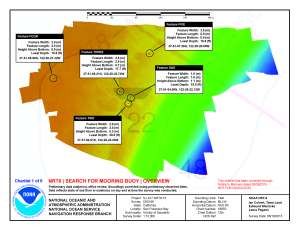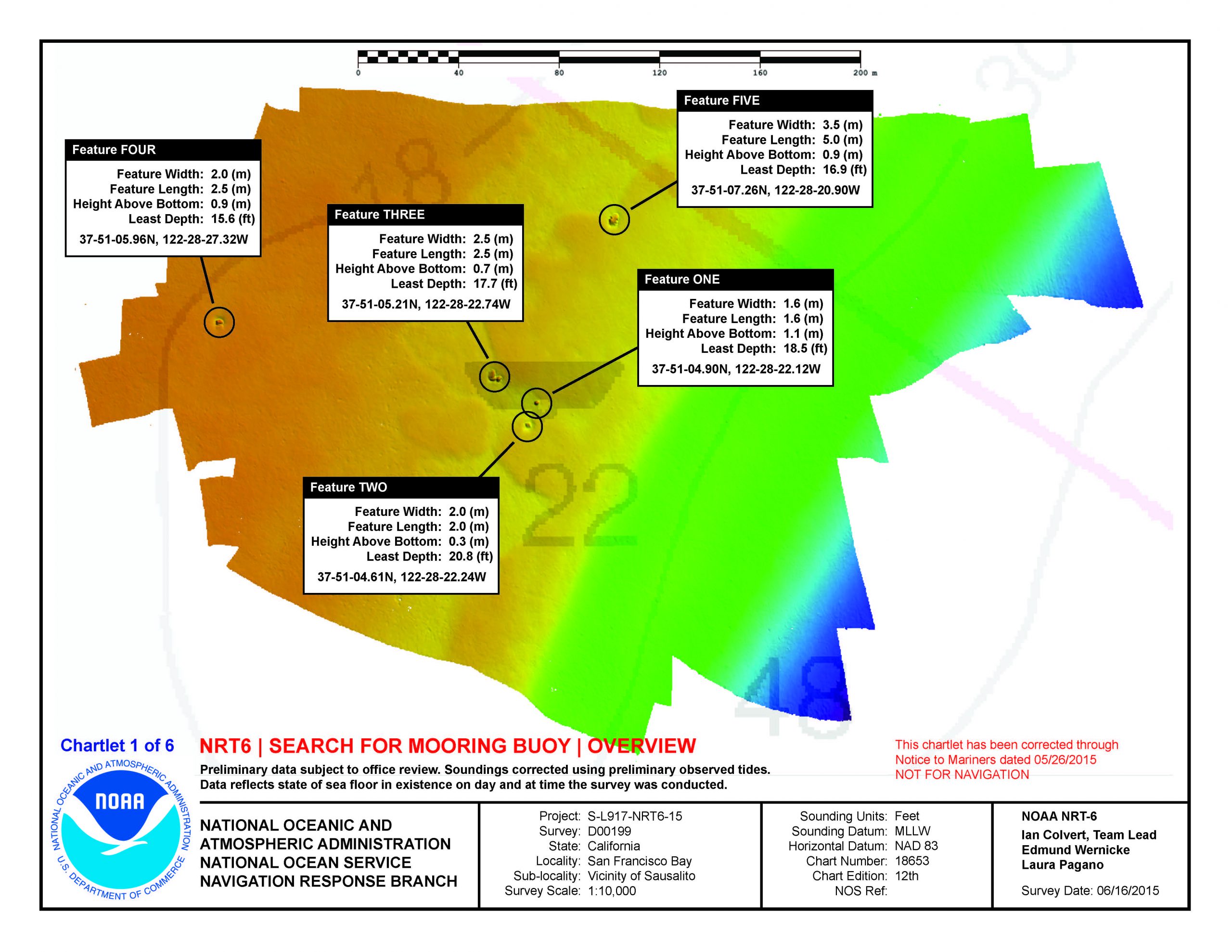Coast Survey’s Navigation Response Team (NRT) 6 responded to a request from the U.S. Coast Guard to locate and facilitate recovery of a sunken mooring buoy near Sausalito, California.
Although not a threat to surface navigation, there are two reasons for this recovery effort. The first is to protect mariners from getting their anchors caught on the buoy or tangled in the mooring chain. Recovery will also allow the U.S. Coast Guard to repair and possibly reuse the buoy.
A mooring buoy is an anchored buoy fitted to receive a ship’s mooring chain. It essentially allows mariners to secure their ships without the use of an anchor. The lost mooring buoy is four feet in diameter connected to a chain 117 feet in length.
Using sonar, NRT6 created a ten centimeter resolution grid (a network of horizontal and vertical lines superimposed over a chart) and located five features on the seafloor that could be the lost mooring buoy.

The first feature is the strongest candidate. Its length, width, and height appear similar to that of the lost buoy and there is a notable lack of scouring. Scouring occurs when swift moving water flows over submerged objects over time. The lack of scouring on feature one indicates that it has not been underwater for long.

Features two and three appear to be the two buoy blocks that are square in nature and and have established scouring. Feature three also has what appears to be a mound of rubble resting next to it which is thought to be a mooring chain. Features four and five are merely curiosities that are being considered. The following video tour further illustrates and explains these five features.
https://www.youtube.com/watch?v=4GZR8eAWFPY&feature=youtu.be
Although we have not yet concluded which (if any) of the five features is the lost buoy, the U.S. Coast Guard has recovery operations planned for July 1st. We will then know for sure if NRT6 indeed located the lost buoy.
UPDATE (July 9, 2015)
The U.S. Coast Guard Ship Aspen successfully recovered the sunken Sausalito mooring buoy last week. They were able to hook onto the chain on the second attempt with the aid of NRT6’s images.
“Knowing exactly where to drag our grappling hook really helped, and made what could have been a day-long, frustrating, and risky evolution relatively quick and painless,” said LTJG Sarah Jane Sapiano, Aspen operations officer.


News and Updates
